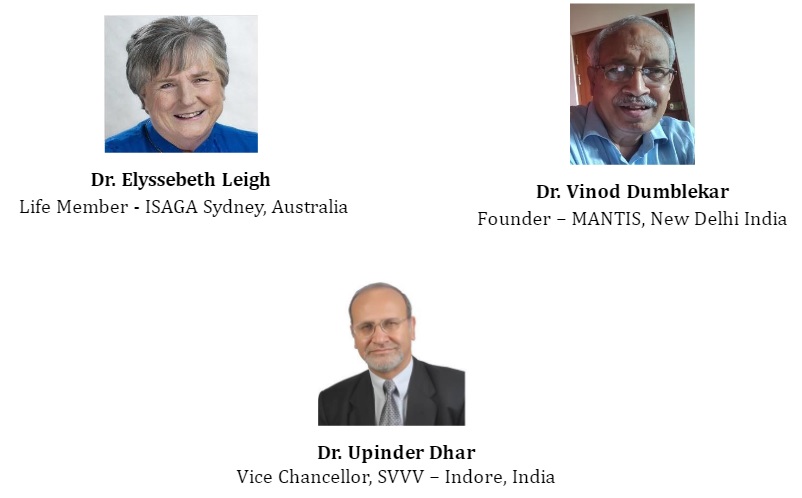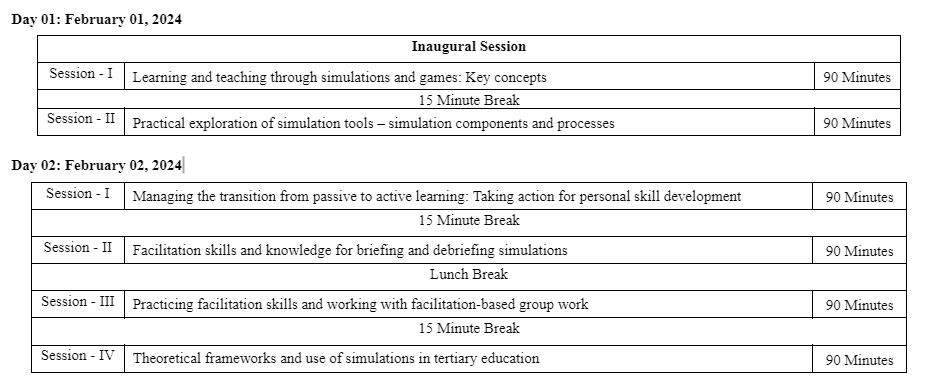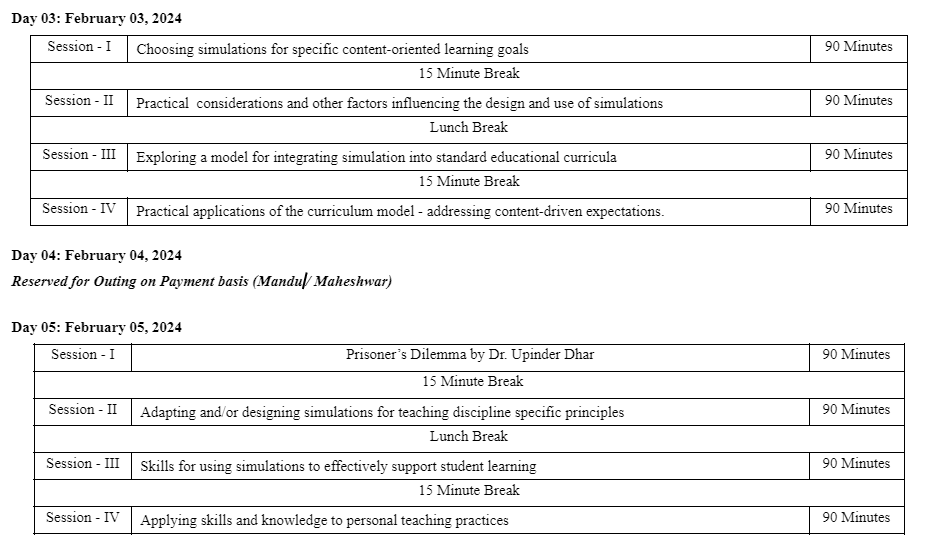Centre of Excellence in Simulation and Gaming
The implementation of game-design features and ideas in non-game environments is known as gamification. A substantial corpus of research has been conducted on the interaction between self-awareness, causal attribution, and action. Researchers have focused on how people see their role in the circumstances that lead to success or failure. Experiments have demonstrated that when people are made more self-aware, they are more inclined to attribute success to themselves. The researchers also discovered that gamified activities were extremely effective in engaging Generation Z, with team-based gamification events being especially engaging. The University has created the Centre of Excellence in Simulation and Gaming to promote simulation and gaming as teaching and to do research in this emerging multidisciplinary field. For worldwide networking, the Centre will collaborate with ISAGA and other professional organisations.
About Shri Vaishnav Trust
1884 is a landmark year as the foundation stone was laid 138 years ago for Shri Vaishnav Group of Institutions by compassionate cloth merchants of Vaishnav cult of Indore, MP (India) which was later reconstituted as Shri Vaishnav Sahayak Kapada Market Committee in the year 1934. Shri Vaishnav Vidyapeeth Trust believes in taking the nation forward by improving the quality of life of its citizens by continuously working in the sphere of education, health and environment. It has been established to promote education and research in various disciplines through academic Institutions for the benefit of all sections of the society, but not with the motive of profit. Under the able guidance of Shri Vaishnav Sahayak Kapada Market Committee, Shri Vaishnav Shekshanik Avam Parmarthik Nyas was established in the year 1981. Since then, Nyas has been working relentlessly for the upliftment of the society and country as a whole by providing better technical and professional education, health facilities, schools and other services.
SHRI VAISHNAV VIDYAPEETH VISHWAVIDYALAYA
Shri Vaishnav Vidyapeeth Vishwavidyalaya is a UGC recognized private university established under
Madhya Pradesh Niji Vishwavidyalaya (Sthapana Avam Sanchalan) Adhiniyam in 2015 at Indore MP (India).
The University has been established with a vision to be a leader in shaping a better future for mankind through quality education,
training and research. It shall pursue the mission to make a difference in sustaining the growth of global societies by developing
socially responsible citizens.
AIU Academic and Administrative Development Centre (AIU-SVVV-AADC)
Association of Indian Universities (AIU) has established AIU Academic and Administrative Development Centres in 10 different Universities across the country. The objective of establishing these centres is to organize short term professional development programs for the faculty members and training programs for the administrative functionaries of the member universities, especially on the use of technology and adopting blended learning methods of teaching. SVVV is honoured to have one of the AIU Academic and Administrative Development Centre (AIU-AADC). AIU-SVVV-AADC is continuously engaged in organizing faculty and staff development programs every month.
About AAROHANAM-2024 ....the climbing
The one week FDP is named as "AAROHANAM" which is a Sanskrit word and translated as "ascension" or "climbing upward." It likely conveys a sense of progression, growth, and development for faculty members. "AAROHANAM" symbolize the ascent or advancement of educators in their professional journey. It is a positive and forward-looking approach to nurturing the capabilities of faculty members, fostering a culture of continuous improvement and progress within the academic community. The FDP will be focused on providing opportunities for skill enhancement, knowledge enrichment, and career development, allowing faculty to climb upward in their academic and professional pursuits. The NEP-2020 suggests using Simulation and Games (SG) techniques to make learning more engaging and fun. It proposes the use of educational SGs to enhance learning outcomes. SG can help better learning outcomes for complex topics and subjects that can get tough to imagine for students and helps to get applications. SG based education is the pedagogical approach of providing students with the opportunity to practice learned skills in real-life situations. There are a number of behavioural skills that cannot be acquired by simply listening to lectures or reading books, but are learned best through practice. In this perspective, SG is considered as a powerful tool for creating more realistic and experiential learning environments. SG based teaching offers many opportunities to learners that extend far beyond the traditional lecture, classroom, tutorial or laboratory setting. It has the potential to provide the learner with an opportunity to take on a new role, to learn by doing, and to make decisions within the safe context that is as close as we can get to the authentic workplace. The low usage of SG as a pedagogical tool stems from the lack of familiarity and requisite training among faculty members. This one week FDP will introduce the participants to SG as a student and as a teacher. The FDP will be full of magic, games, entertainment and learning. After completing the program, participants will be able to choose a simulation/game for their courses, understand how to deliver a class using simulation and gaming, and know how to evaluate a simulation/game.
Resource Persons

Agenda of FDP
Participants in the program will be asked to complete a survey to help focus the content of the program on their current needs and future expectations as academic educators and researchers. Each day of the program will be approximately as follows:
An opening activity will be demonstrated to explore the use of simulations and games relevant to one or more of the participants' academic disciplines. The purpose is to demonstrate how the outcomes of each activity align with the relevant knowledge content.
The activities will be debriefed and followed by a presentation addressing theories relevant to the activity, the knowledge content and participants' skill needs.
A period of each afternoon will be devoted to developing and then applying knowledge about design principles for such purposes as developing skills for on-going design of original activities and/or choosing existing activities to employ or adapt to specific learning goals.
Resource Persons


